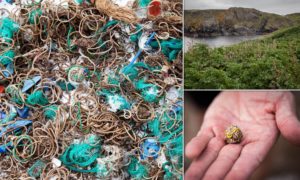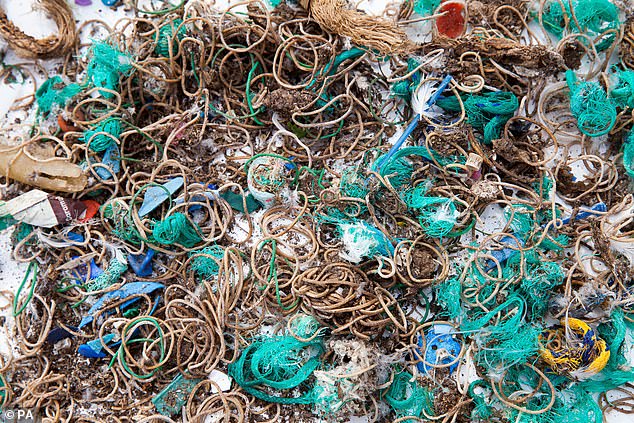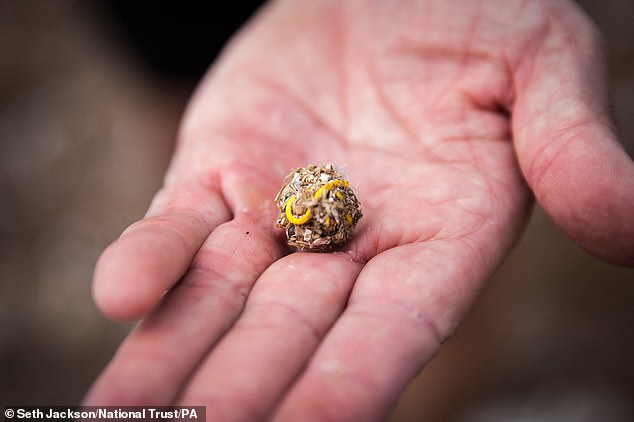
Seabirds Litter Uninhabited Island With Thousands Of Rubber Bands Thinking They Are Worms
Experts can’t find out why thousands of elastic bands were found on the Mullion Island, which is so remote that you need a special permit to visit it.
Investigations revealed that the latter was brought in by seabirds.

After researchers found the elastic bands on the island, they launched an investigation and it turned out that they were being brought in by great black-backed and herring gulls.
It is believed that the bands were brought in by the birds mistaking it as food while feeding in agricultural fields close to the island.
After eating or ingesting the bands, the great black-backed and herring gulls would return to the island to deposit them at the roosting site.
Researchers said the great black-backed and herring gulls may have mistaken the bands for worms.
In the press release, the National Trust said, “small bundles of green fishing net and twine were also discovered among the undigested food, likely mistaken by the gulls for tasty morsels floating on the surface of the sea.”

Rachel Holder, an area ranger that works for the National Trust, said, “Ingested plastic and rubber is another factor in a long list of challenges which our gulls and other seabirds must contend with just to survive. Despite being noisy and boisterous and seemingly common, gulls are on the decline. They’re already struggling with changes to fish populations and disturbance to nesting sites – and eating elastic bands and fishing waste does nothing to ease their plight.”
Rachel added, “Places like Mullion Island should be sanctuaries for our seabirds, so it’s distressing to see them become victims of human activity.”
The Mullion Island is located off the Lizard Peninsula in Southern Cornwall.
The island is managed and cared for by the National Trust, which provides a sanctuary for the nesting seabirds and other animals.

Mark Avery, a former conservation director of the RSPB and a bird scientist, said this discovery shows how humans are polluting oceans and our habitats.
Mark added, “Swallowing rubber bands will reduce the amount of space in a bird’s stomach for proper food and nutrition. We know that bits of plastic remain stuck in birds’ guts and bit by bit get broken down. Rubber bands won’t be good for them, and might actually be very bad.”
Mark continued, “Seabirds can live up to 25 years so that’s more than two decades of hoovering up all the rubbish we chuck in the oceans.”
The National Trist is now calling on businesses to dispose of plastic, latex, and other materials properly so they don’t end up harming animals.